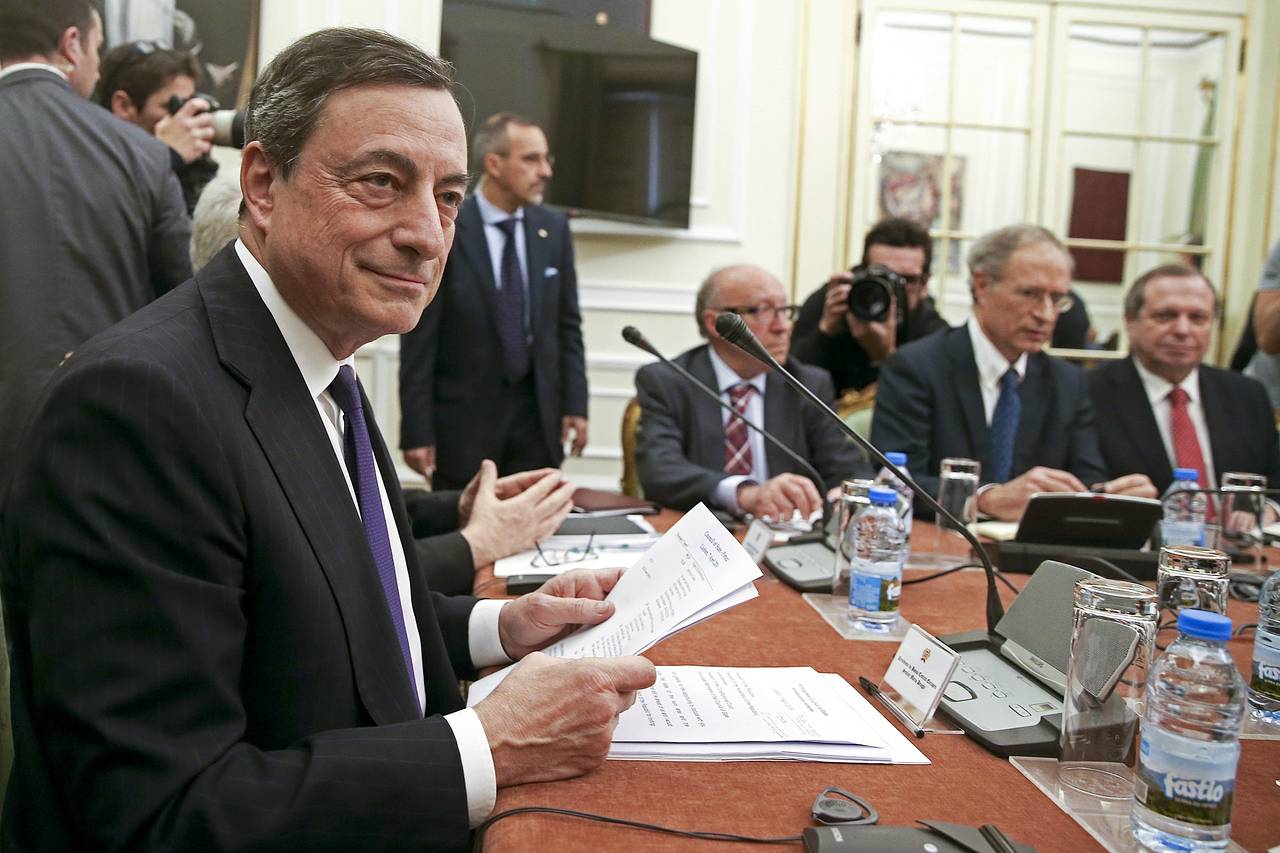
THE BEGINNING OF THE END
ECB to slowly retreat from expansive monetary policy

As the European Central Bank’s (ECB) governing council meets in Frankfurt today and tomorrow, investors and analysts will look for further signs of a gradual shift away from its loose monetary policy.
To stabilise the Eurozone economy, the ECB launched a $1.1 trillion bond-buying program in March 2015 and extended it in 2016. While it’s clear that the stimulus package will run out sooner rather than later, ECB President Mario Draghi faces a delicate balancing act.
On the one hand, the ECB needs the markets to get used to the idea that cheap money won’t last. On the other, it wants to rattle the markets as little as possible, meaning that an all-too-sudden shift away from the quantitative easing mechanism is unlikely.
Mr Draghi’s speech in Sintra, Portugal three weeks ago gave an indication of just how close the markets will be listening. Although there was no real news, bond prices jumped markedly, raising hopes that the Eurozone’s economy is finally picking up speed again.
ALLIANCE ON HOLD?
After years of strain, the Thai-US relationship is on the mend

Thailand’s Prime Minister Prayut Chan-o-cha’s visit to the White House scheduled for today has been postponed. Both sides reportedly need more time to consider how proceedings will transpire.
Tensions between the US and Thailand rose after Chan-o-cha’s military junta came to power in a 2014 bloodless coup. The Obama administration then punished the anti-democratic regime by reducing military and technical cooperation, while Thailand began to strengthen ties with China through the Belt and Road initiative.
Under the Trump administration, however, relations have thawed. Chan-o-cha received an unexpected phone call from the White House in May— as did Philippine strongman Rodrigo Duterte. This trend suggests that these traditional US allies, whose authoritarian leaders were given a cold shoulder by President Obama, could be back in favour.
Expect talks to go ahead as the US looks to once again improve ties with its traditional Southeast Asian ally.
TALKING TRADE
US and China begin Comprehensive Economic Dialogue

The first of four rounds of the Comprehensive Economic Dialogue between the US and China commences today. The talks will be led by Chinese Vice Premier Wang Yang and US Treasury Secretary Steven Mnuchin.
Despite recent tensions over North Korea, US arms sales to Taiwan and the South China Sea, Beijing and Washington share substantial mutual economic interests. Almost a fifth of China’s exports is destined for the US, while American firms are addicted to cheap, Chinese-made inputs, which lower their production costs.
Today’s high-level talks will address a range of economic issues including reducing trade barriers.
However, Washington’s options to influence Beijing are dwindling as China’s economic and diplomatic power grows. But as Trump tightens the screws on US exports to China in the lead-up to the dialogue—particularly steel exports—economic incentives discussed today will have increased value for the People’s Republic.

